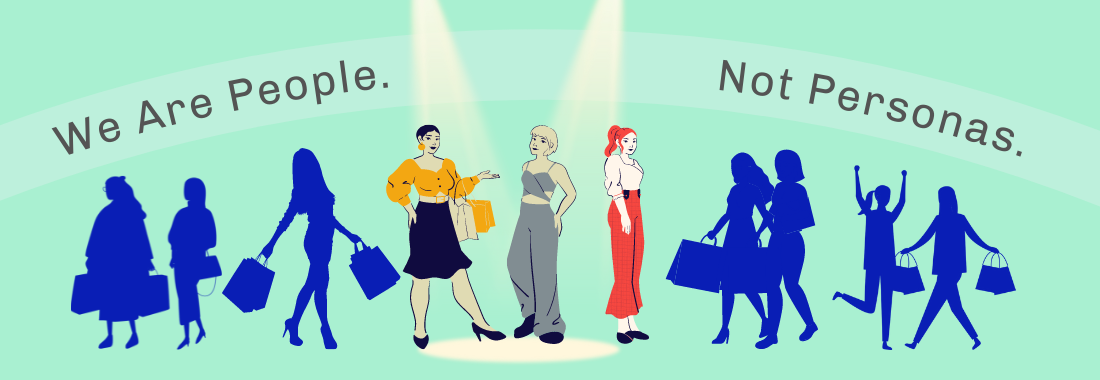Personalisation is one of the most overused words in retail.
And for good reason — it's a powerful way to create a tailored shopping experience for customers.
In the era of personalisation, customers are driving their own experience. Companies like Amazon and Netflix have proved this time and again, demonstrating the power of personalisation and curation to engage shoppers and generate significantly increased revenue.
There's no doubt that personalisation is here to stay in retail. By providing a tailored and contextual experience to every customer, businesses can create a more intimate connection with shoppers and boost brand loyalty by as much as 47%.
The question for businesses is how to best implement it to meet the needs of both shoppers and merchandisers.
With the ever-increasing costs of running your business, personalisation can no longer be achieved with data-driven tools or a big team of merchandisers. It has to be automated.
In this blog post, we'll explore how AI is redefining the meaning of personalisation and paving the way for a new era of retail. Stay tuned - it's going to be exciting!
Personalisation in eCommerce: Then vs Now
The traditional definition of personalisation is using customer data to deliver targeted content and offers. This might include showing a customer products they are interested in based on their browsing history, including their name in an email, or sending them a coupon for their birthday.
While this kind of personalisation can be effective, it has its limitations. First of all, it's often based on guesswork. You might think you know what a customer wants, but you can't be sure until they actually make a purchase. Not to mention that persona-based personalisation relies on creating large cohorts of look-a-like customers, which can be both inaccurate and limiting.
Secondly, it can be time-consuming and expensive to gather and analyse all the necessary data. And finally, even the most sophisticated data-driven personalisation tools can't always keep up with the ever-changing preferences of consumers.
AI-powered personalisation is a different beast altogether. Using AI, you can automatically and dynamically personalise every aspect of the customer journey, from product recommendations to checkout flow. It is then about the person, not a persona.
So let's take a closer look at six ways AI is redefining personalisation.
#1 Segmentation
In a time when customers are bombarded with generic marketing messages, personalisation has become essential for businesses that want to stand out.
However, traditional personalisation methods, such as segmentation, often fall short. According to Harvard Business School, 95% of products fail due to ineffective market segmentation strategies. Traditional segmentation lumps together consumers who may have very different needs and preferences, making it challenging to create a truly personalised experience. Furthermore, segmentation doesn't take into account the fact that customers’ behaviour changes over time.
On the contrary, AI-powered personalisation can learn about each customer individually and adapt in real-time as their needs change. This makes it possible to create a million unique experiences for a million unique customers.
In short, AI-powered personalisation is more accurate, responsive and agile than traditional segmentation.
#2 Scalability
Personalisation has always been a challenge for eCommerce businesses. It's traditionally been a manual process, requiring a lot of time and effort from merchandisers. And because it's so labour-intensive, it's difficult to set up, maintain and scale.
Old personalisation systems are inflexible and often take away from merchandisers' resources. You would have to hire a team of eCommerce merchandisers and even then, you couldn't fully personalise each shopper's experience.
However, with the advent of AI-powered personalisation platforms, everything has changed. These platforms are fully automated and can scale easily to meet the needs of any eCommerce business. They are also much more flexible, allowing companies to create tailored experiences for each shopper easily.
As a result, AI-powered personalisation is quickly becoming the new standard in eCommerce.
#3 Adaptation
Conventional wisdom says that personalisation is all about getting the details right. But in a world where customers are increasingly empowered, traditional rules no longer apply. This is because they rely on a rigid set of rules that can't keep up with individual customers' constantly changing needs and preferences.
For instance, companies often offer discounts to all customers regardless of their interests and preferences. This one-size-fits-all approach often results in lost sales and frustrated customers.
On the other hand, personalised pricing can increase your ROI by 10%. This is thanks to AI-powered personalisation that is adaptive and capable of responding to these changes on the fly. By harnessing the power of AI, retailers can provide a truly personalised experience for each and every customer based on their specific price sensitivity and preferences.

#4 Experience
We've all been there before - you look at a product online, and the next thing you know, you're being followed around social media by ads. It can be a little creepy, and it's often ineffective.
Traditional personalisation and retargeting techniques are based on past behaviour, which doesn't always accurately predict what a customer wants or needs. And according to a Gartner study, 67% of consumers feel it’s very important for brands to automatically adjust content based on customer context.
With the right AI platform, you can learn about your customers' needs and interests in real-time, and use that information to create truly personalised experiences that are relevant and helpful.
The result is a win-win for everyone involved: higher conversion rates for you, and a better shopping experience for your customers.
#5 Data
Traditional personalisation methods are often biased toward older products that have a wealth of historical data to draw on. This can create a vicious cycle in which new products are overlooked in favour of older ones, leading to lower sales and less data to work with.
Furthermore, 27% of marketers claim that lack of data is the key obstacle they face when it comes to personalisation.
AI personalisation offers a more holistic approach that is not limited by past data. Instead, it relies on customers' current preferences and behaviour to determine which products to recommend.
As a result, AI-powered personalisation can better support new products and help them to compete with established ones. In the long run, this can lead to a more diverse and dynamic product mix that reduces your dead stock, benefiting both retailers and consumers alike.
#6 Business Size
Too often, small businesses think of personalisation as a luxury that they can't afford. But the truth is, if you're not personalising your eCommerce site, you're missing out on a huge opportunity to scale your business. The good news is that you don't have to be a big company to do it.
As Barry Kerrigan, CEO of Kerrigans, explained: "As a small business owner with limited expertise and resources... how can we compete with the big boys online and still offer our customers a personalised experience online? Enter Shopbox AI - a tool that creates a unique experience for every customer that returns to your store, and happy customers convert more - using Shopbox our conversion rate increased x 3, and AOV increased by over 15%."
Thanks to advances in AI, even the smallest businesses can now offer hyper-personalised experiences to their customers. By leveraging the power of real-time data, AI can help small enterprises make the shopping experience tailored for every customer.
As a result, it's the only way small businesses can scale personalisation cost-effectively, without sacrificing efficiency or scalability and remain competitive in today's marketplace.
The Death of Traditional Personalisation
As we move into a future dominated by AI, personalisation will take on a new meaning. The days of static customer personas are behind us. As AI continues to evolve, so too must our strategies for reaching and engaging customers.
It’s time to start thinking about how AI can redefine the way you personalize your marketing messages. With the power of predictive analytics and machine learning, businesses can create unique customer experiences in a dynamic and personalized fashion.
Are you ready to jump on the AI bandwagon? If so, contact our team today – we would be happy to show you how this revolutionary technology can work for your eCommerce store.

